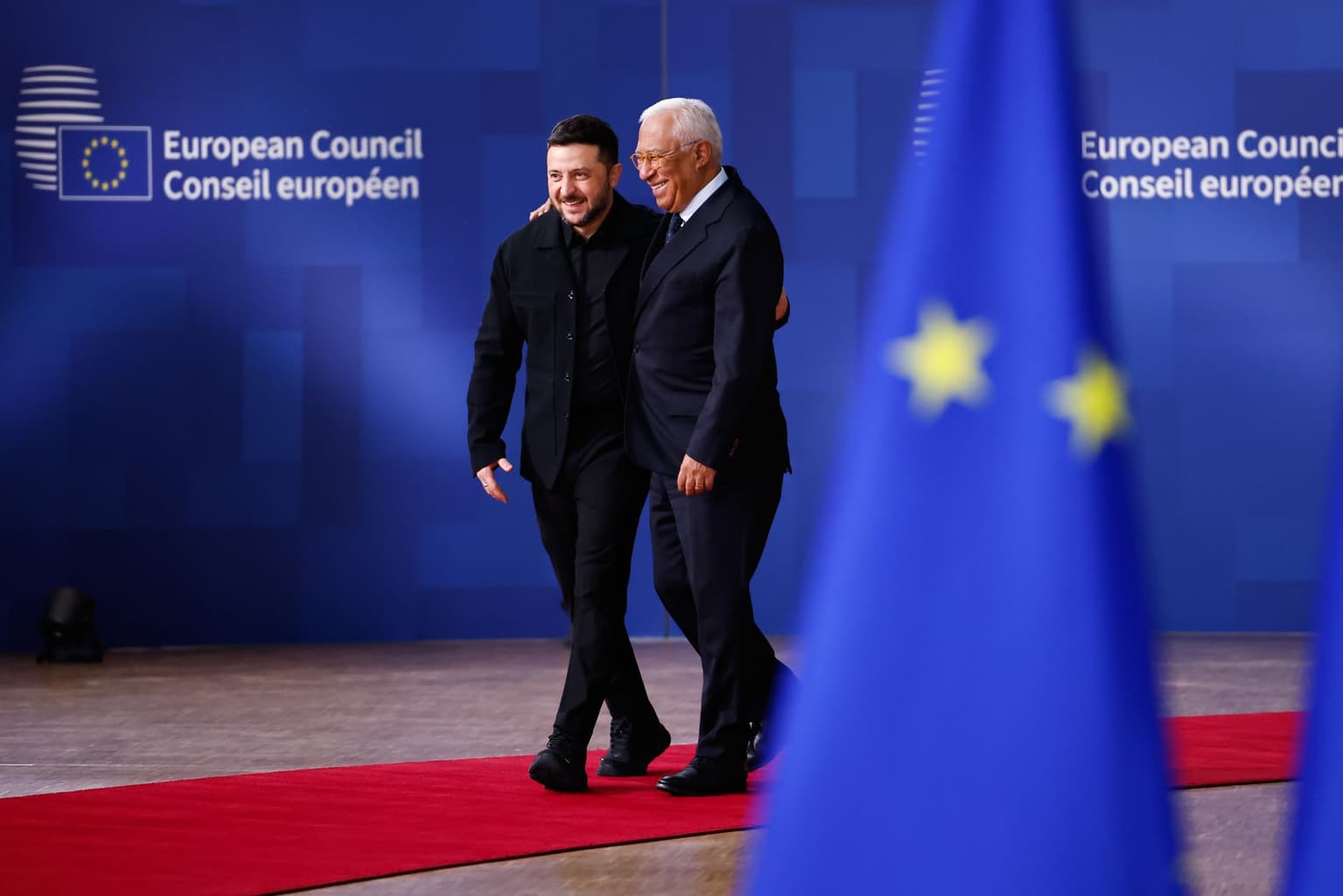Zelensky arrives at EU summit as leaders set to discuss Ukraine aid, frozen Russian assets

Editor's note: This is a developing story and is being updated.
President Volodymyr Zelensky arrived in Brussels on Oct. 23 for a European Council meeting as EU leaders prepare to discuss ways to increase support for Ukraine and put more pressure on Russia.
Before the summit, Zelensky met with European Council President Antonio Costa, who invited him to address the gathering. The Ukrainian president is expected to brief EU leaders on the humanitarian needs of Ukrainians amid intensified Russian strikes and ongoing efforts to achieve peace.
"On one hand, we need to continue to support diplomatic efforts, but on the other hand, as we have always said, we will continue to support Ukraine by all means," Costa said before the meeting.
As part of his visit to Brussels, Zelensky is holding talks with other EU leaders, seeking to cement the bloc's support for Ukraine.
The president met with Czechia's outgoing prime minister, Petr Fiala, French President Emmanuel Macron, and Polish Prime Minister Donald Tusk to discuss support for Kyiv and Russian strikes against Ukraine's energy infrastructure.
Zelensky also held talks with German Chancellor Friedrich Merz, Finnish Prime Minister Petteri Orpo, and Italian Prime Minister Giorgia Meloni.
At the meeting, EU leaders will also discuss long-term financial support for Ukraine, including potential mechanisms using Russia's immobilized assets. Belgian Prime Minister de Wever has expressed opposition to the plan due to legal risks.
The EU froze about $300 billion of Russia's central bank's foreign reserves in February 2022 as part of its third sanctions package, prohibiting all transactions related to their management.
The European Union also formally adopted its 19th sanctions package against Russia on Oct. 23. The package bans importing Russian liquefied natural gas (LNG), starting January 2027.
The new sanctions, first proposed by the European Commission on Sept. 19, target Russian banks, energy revenues, and entities involved in evading earlier restrictions. The package also sanctions third-country traders and refineries, particularly in China.
The measure was approved after Slovakia dropped its objections a day earlier.
Zelensky thanked Costa for inviting him to the Brussels meeting and for the bloc's decision to approve the 19th sanctions package, calling it an important signal of unity.
The Ukrainian president also said that both the EU's latest sanctions and new U.S. measures targeting Russian oil firms send "a positive signal" for other nations to follow suit.
Zelensky's arrival in Brussels follows his Oct. 22 visit to Sweden, the second leg of his European tour after Norway, aimed at securing further support for Ukraine as Russia intensifies its winter campaign against the country's energy infrastructure.
According to the European Council, the EU and its member states have provided a total of 177 billion euros ($205 billion) in aid to Ukraine since the start of the full-scale invasion, including 63 billion euros ($73 billion) in military assistance.












